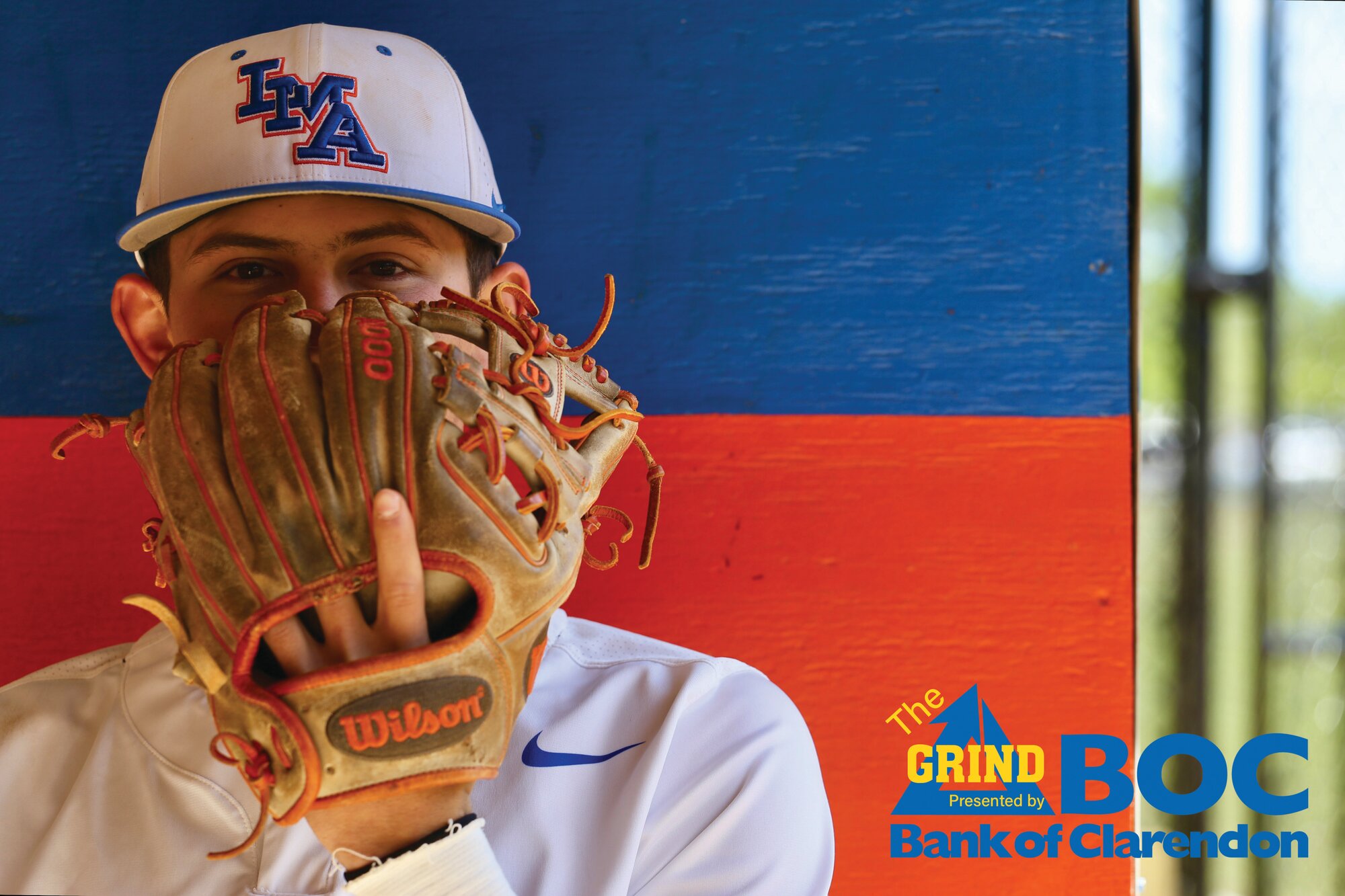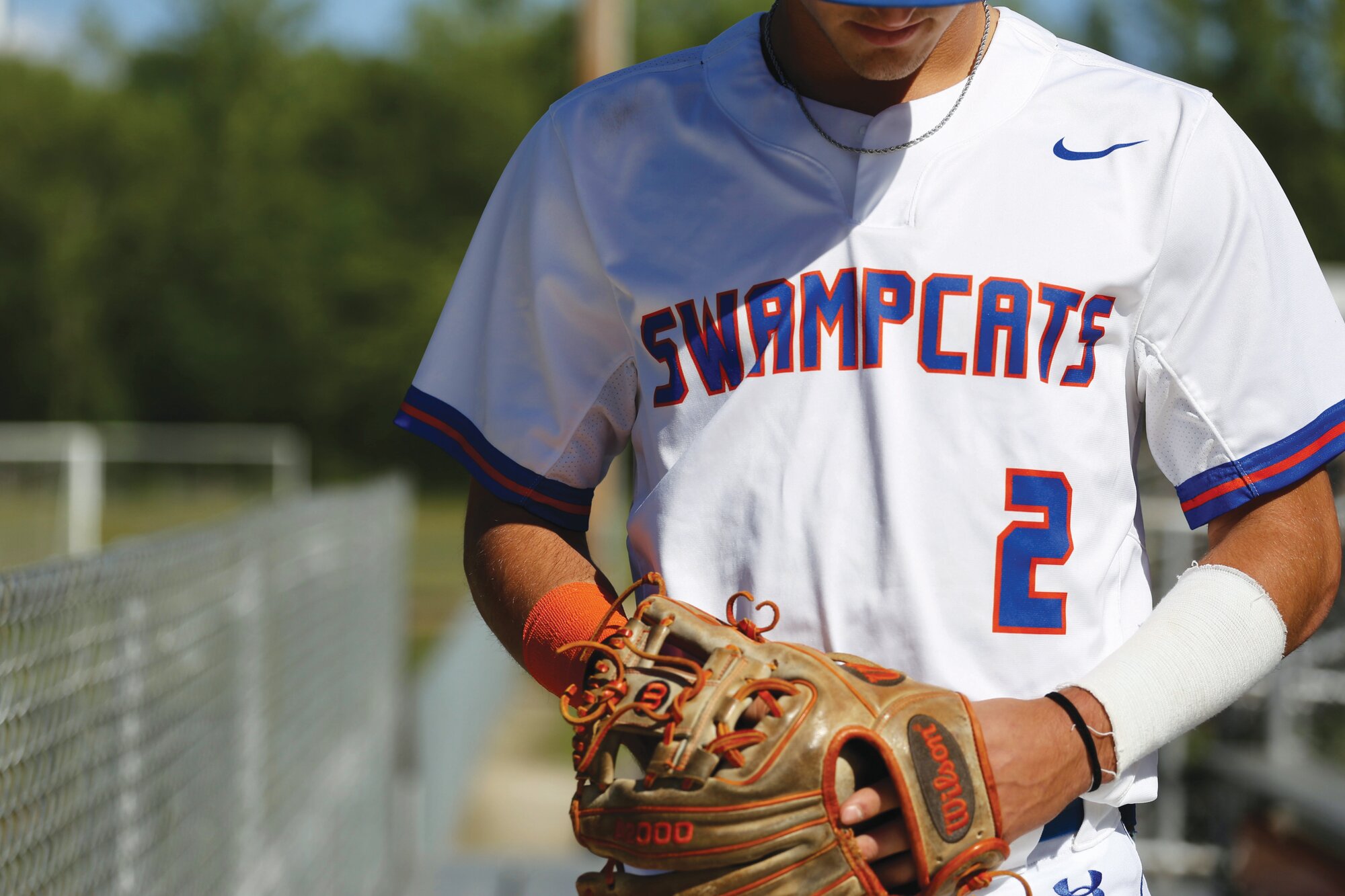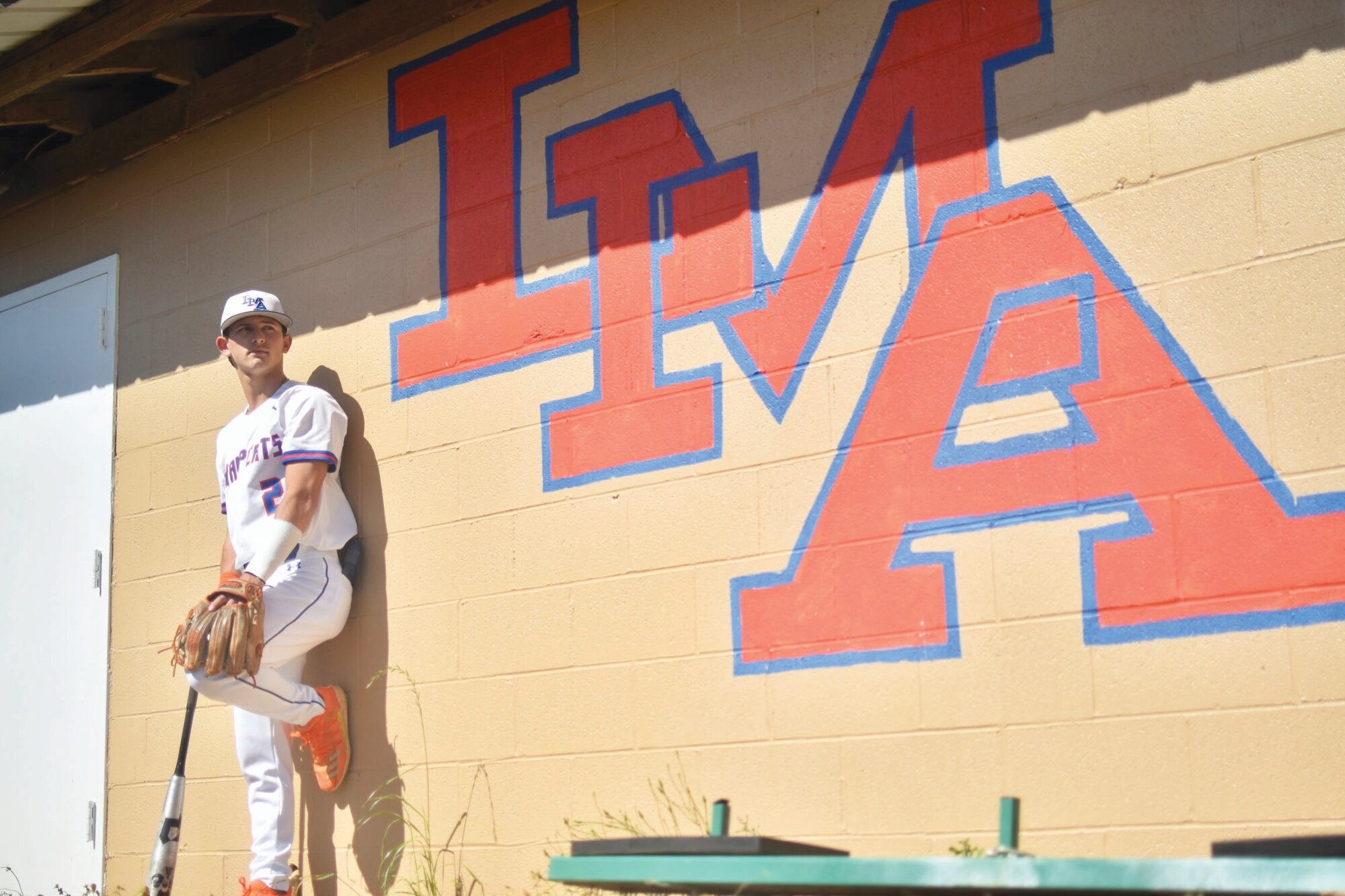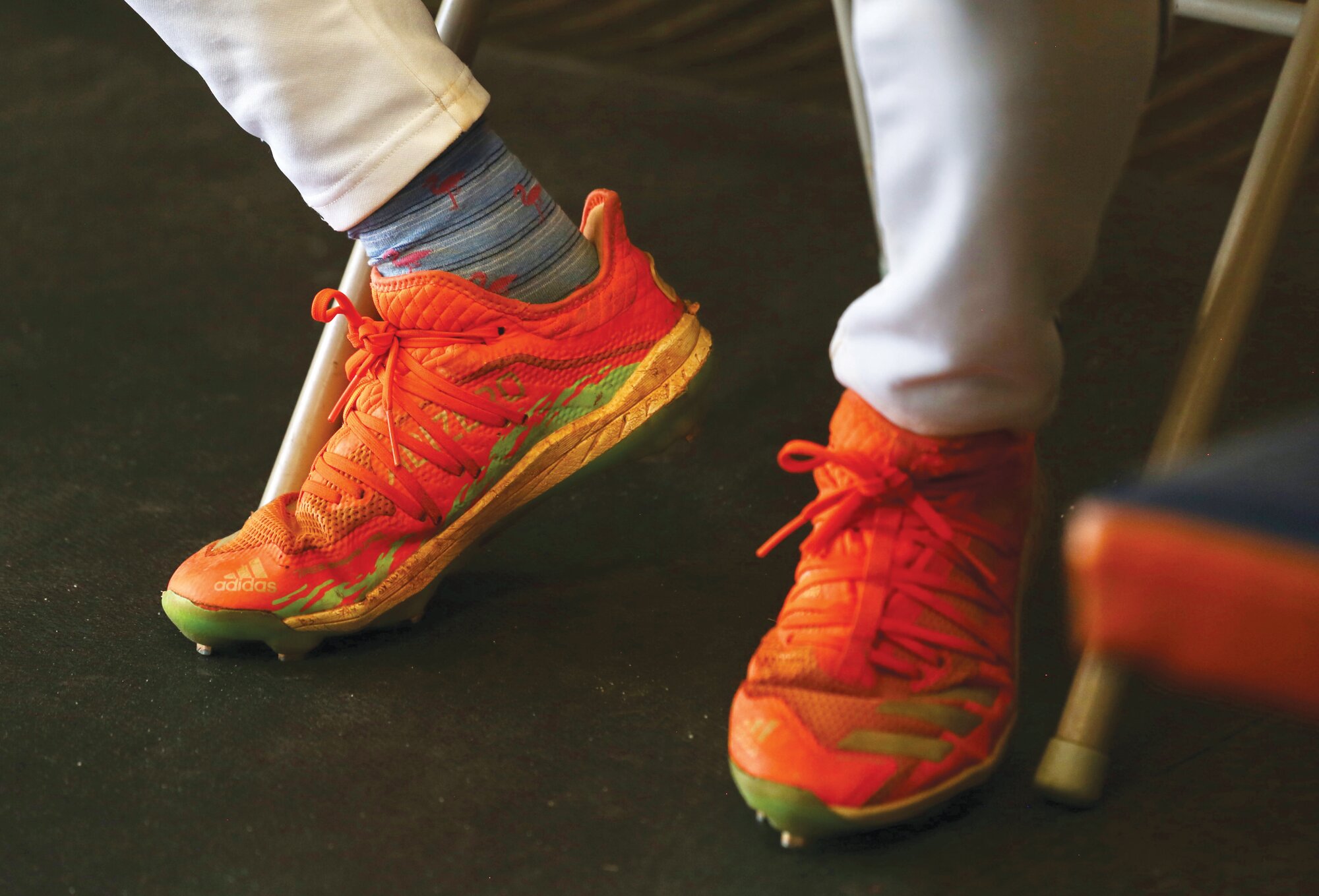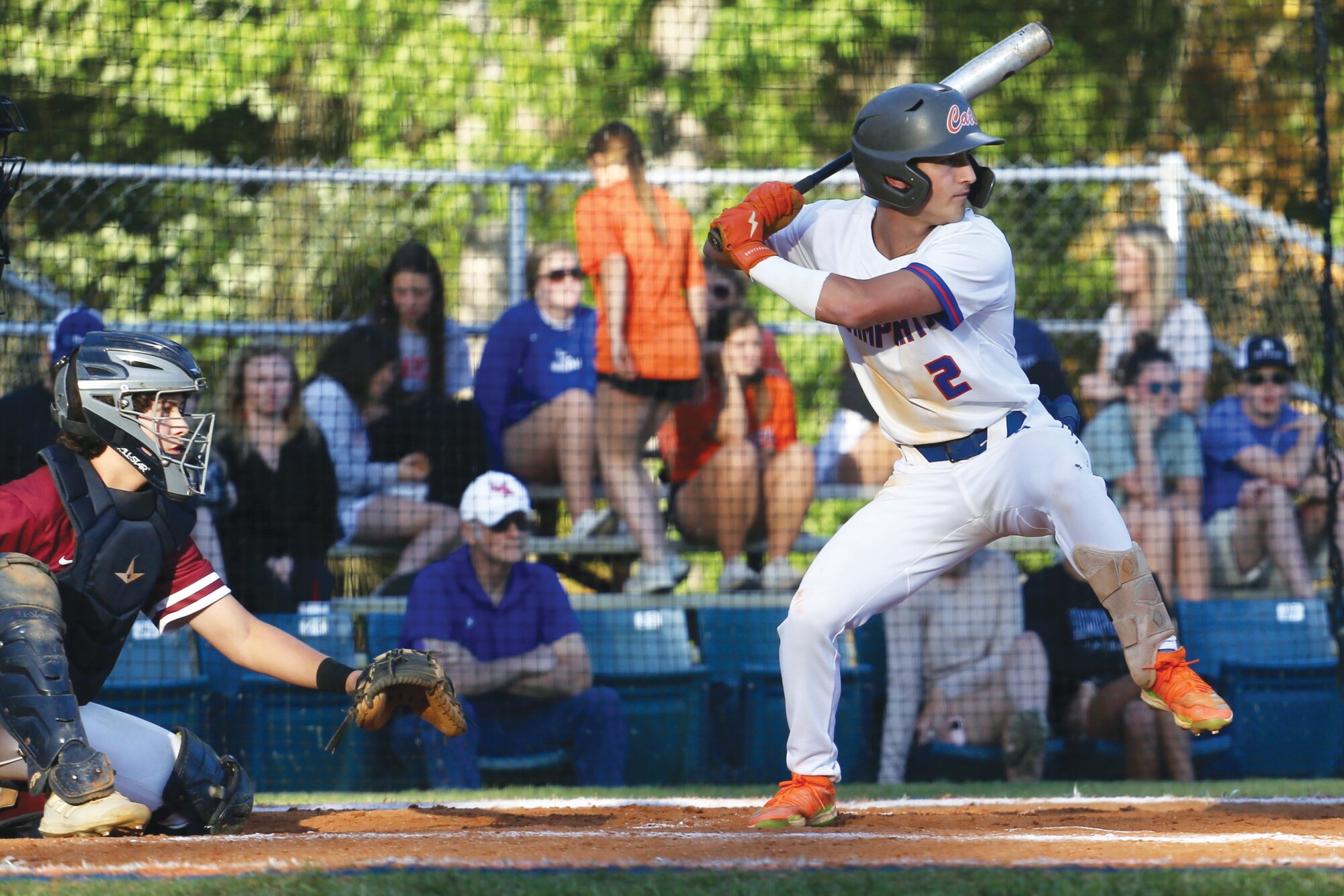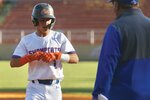The Grind, presented by Bank of Clarendon: Laurence Manning's Brown toughs it out for last season at LMA
isaiah@theitem.com
You couldn't look at the middle of the LMA infield during the past few years without seeing Jackson Brown.
You would also find Jackson on the gridiron, but the diamond is where he's been the most impactful, playing shortstop and second base for the Swampcats.
FROM THE BEGINNING
Baseball is something Jackson has played since early in his childhood. Football came along a little later, but Jackson's first love was America's pastime.
Former Boston Red Sox second baseman Dustin Pedroia was Jackson's favorite baseball player growing up. Jackson appreciated the similarity they shared as undersized guys. It took a few years for Jackson to transition to the infield like his favorite player, but once he did, it stuck.
"Growing up when I played on the Sumter All Stars, I always played outfield," Jackson explained. "When I was like 11 or 12, I started playing short and second. In an All Star Game against Lake City, I'll never forget, I made like five or six plays, and ever since then, I've just been in the infield."
Jackson credits his mother, Kelly, for helping him grow into the player he is today, especially because of how she pushed him while he was growing up.
"My dad didn't really play sports; my mom is the one who gets on me," Jackson explained with a grin. "She's the one who lets me know if I had a bad game or not. She wasn't as tough on me early on, but as I got older, she definitely got on me. I like it, though; I think it has made me better."
Kelly passed on her passion for athletics to Jackson early on.
"I played sports myself," Kelly said. "My dad played at Wingate in college, so my brother and I were always very into sports. Well, my husband was not as into sports, so I guess that's why I was the one that pushed Jackson, because I had been there, done that. I took him to all his tournaments and all that. The best memory we have is the hours we spent on the road traveling to play ball. We always had fun.
"When Jackson first started, it was all about being with his friends, but by the time he was about eight, he really loved it. He wanted to play every weekend, everywhere. A coach could call and say, 'Hey, we need somebody to fill,' and he would be like, 'I'll do it.' He just loved to play."
Around the age of 13, there was a switch in Jackson's mentality and work ethic. This resulted in an increased desire to do what it took to get to the college level.
"When I went to my first big baseball tournament," Jackson said was what changed his perspective on the sport. "It's where I saw all these guys already committed to colleges and stuff. I just saw how good kids get, and I just wanted to be at that level. So that's why I started working harder. I started going to the gym, and I started working on my swing with coaches. I started playing with the Spartans out at Myrtle Beach. It's a showcase team that starts at like 15 or 16U. That's where you go out and you get looked at by coaches. That's where I really started taking things more seriously because I wanted to get to the next level. No one really had to push me harder; it just kind of happened. Growing up, I loved the game. I knew this was what I wanted to do."
TOUGHING IT OUT
Jackson played through his senior season with a torn labrum. The right shoulder injury was something that he could've taken care of during the season, but that would've caused him to sit out all spring. He opted to play instead, a decision that showed his dedication to the LMA program.
"I got a cortisone shot so I could make it through the season, but I'll look at treatment after the season," Jackson said. "It happens over time, like it just tears. But during the middle of last summer while I was still playing and it started hurting. That's not the main time you get recruited, so I would just take some Advil or something before the games just to make it through. I would still let my arm rest because I thought maybe I was overdoing it with too much baseball. So during football season, I didn't throw or anything, I just strictly played football.
"When we got back to baseball to start throwing and hitting, I still felt it, so I went to the doctor, got an MRI, and I had a torn labrum. I talked to my college coaches to see what they wanted me to do, and they said it was up to me. I really wanted to play my senior year, so I told them I was gonna get the shot to play this year out, and then I should be back in November."
Jackson had to have some tough discussions leading up to the season.
"I had a very serious conversation with him," Swampcats head coach Barry Hatfield said. "He had just signed with Anderson University, and I said, 'Look, go home, talk to your parents. Talk to Anderson. You've done enough for this baseball program; we're going to support you in whatever you decide.'"
IMPACTFUL SWAMPCAT
The decision to play his senior year did come with an extra level of responsibility. Jackson was able to return to his natural position at shortstop after a two-year stint at second base, but he also had to deal with the task of trying to lead LMA to a second-straight state title.
"I felt a lot of pressure," Jackson said after helping the 'Cats win the SCISA 3A title last spring. "I felt like I had to do more."
Hatfield could sense the pressure Jackson was dealing with but felt he handled it marvelously.
"He did a wonderful job as a leader," Hatfield said. "Jackson is not a vocal kid. He's not the 'rah-rah' type, but he was always there just to make little comments to some of the younger players.
"He did a great job this year. He had new starters on both sides of him, and he was trying to kind of help them through. Sometimes I would have to tell him to not feel like he had to do it all by himself. I think he was putting a little bit more pressure on himself because he was only one of three starters that returned from the state championship team, and I think all three of them, to a certain degree, were carrying a bit too much pressure."
While the Swampcats weren't able to repeat, Jackson is happy he has the memories that come from last year's state title run. The baseball memories aren't the only ones that Jackson will cherish dearly after a lifetime as a Swampcat.
"The state championship moment from last year," Jackson stated as his top LMA memory. "Coach Hatfield told us our whole life, that dogpile is going to be something that we won't forget. I still remember exactly how it was. There's definitely a lot of things I will miss about LMA. Just too many to count. I've been here since K-3 all the way through 12th grade. Growing up with all these kids is gonna be hard to see everyone go."
Hatfield appreciates Jackson's talent, which helped the Swampcats win a state title. However, what Jackson brought to the program as a person and teammate is what Hatfield will miss the most.
"He's played in a lot of big games for our baseball program," Hatfield said. "Last year, during our run to a state championship, he batted over .500. He was really the catalyst for that playoff run. Even his outs were very hard-hit balls.
"He's just such a good kid. I'm gonna miss the person. With a baseball program like this, we're constantly having to usher new players in, so we're gonna miss his leadership. But I'm gonna miss the kid. That's the worst thing about coaching. You've been around a young man since they start in this baseball program in the seventh grade. You've roughly got six years, that's what you spend with them, and then you gotta tell them goodbye. Jackson's got great parents, but I'm kind of like a parent sending a kid off college. Jackson was the type of kid that never said much, but you just liked having him around."
ANDERSON AWAITS
Jackson recently found out he won't need surgery for his labrum to heal, meaning he can get more acclimated at Anderson sooner than he expected. Jackson is excited to become a member of the Trojans' program.
"I'm ready to get to Anderson and start traveling a lot and having a great time with a bunch of guys that love the game," Jackson said.
Kelly thinks Jackson's work ethic will be the key to him seeing success at Anderson.
"I think if he stays focused and works hard, he can play easily at this next level," Kelly said. "I think what hurt him from going up higher was his size. His complaint in life is that he's short; he thanks me for that. But he's very self-driven, and he works really hard. He always has. He started lifting weights in the sixth grade. He works hard, alone, off the field. He doesn't just go to practice. He's never been like that. He spends a lot of time at the field that we have behind our house and in our batting cage. It's not like him to go to practice and come home and then not go back there and work.
"As long as he continues to work hard, he can be as successful as he wants to be."
More Articles to Read

